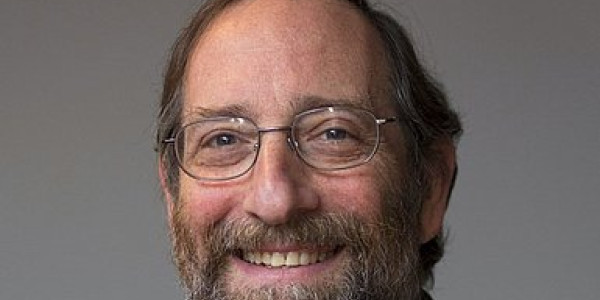High Holiday greeting from the ICCJ President Rabbi David Fox Sandmel
21/09/2025 | Na stronie od 22/09/2025

Source: ICCJ
Rosh haShanah 5786
The ICCJ wishes to all those celebrating, Shanah Tovah, a happy 5786, and invites all visitors of its website to read the High Holiday greeting from the ICCJ President Rabbi David Fox Sandmel.
Dear Friends,
Rosh haShanah 5786, the Jewish New Year, begins on the evening of September 22. For Jews, Rosh haShanah is both a joyous celebration and solemn occasion. We welcome the new year with hope symbolized by eating apples dipped in honey for a sweet year, a shanah metukah. Rosh haShanah is also called yom ha-din, the day of judgment, marking a period introspection, self-examination, and repentance that culminate on Yom Kippur, the Day of Atonement. According to tradition, each person will be judged individually, and the world will be judged in its entirety.
Our world today is an even more frightening place than it was last year at this time. We at ICCJ believe that dialogue is essential – indeed, some of us consider it a divine calling. What we see around us, however, is an abuse of the concept of genuine dialogue, and with it a devaluing - indeed, the dehumanizing - of others. Rather than being inspired by what the late Rabbi Lord Jonathan Sacks called the “dignity of difference,” many consider any difference illegitimate and threatening. Listening with an open mind and open heart to learn and understand our neighbors, and being willing to have our own views challenged, is disdained by those who demonize anyone whose beliefs or opinions they do not share. Hatred and violence seem to be the order of the day. For Jews, Christians, and Muslims, the situation in the Middle East, and its effect on interreligious relations, is particularly painful.
Earlier this year, we were discussing some of these issues and the sense that much of the world is unaware, disinterested, or hostile to what we are trying to achieve. One person suggested that, in terms of the world at large, we who engage in dialogue are outliers. I responded that I preferred to think of us as the vanguard.
Human beings are by nature xenophobic. Old habits die hard. As practitioners of dialogue know, building trust is essential. And building trust takes time, especially when it challenges long held beliefs that many continue to see as true and sacred (and that are often exploited by religious and political leaders). The fact we have not yet achieved global interfaith harmony, that religious polemic and violence persist, is not an indication that our efforts are failing.
Those of us involved in dialogue sometime forget that the notion that we can harness religious difference so that it is a force for social cohesion and common action is, in the course of human history, a concept than has only been around for a few generations. In many ways and in many places, it is a counter-cultural, radical idea. Though it can certainly be disheartening, we should not be surprised when events overtake us and cracks and strains threaten the progress we thought we had made.
We should remember that it was a seismic global event –the Shoah – that gave rise to the modern dialogue movement in the first place. And, to state of the obvious, relationships are not static; they require constant care and attention as we and the world around us change. They also require the courage to be vulnerable – and to recognize the other’s vulnerability. And finally, they require persistence, as we continue to build a grass roots movement one person at a time.
As I think about the last year at the ICCJ, I want to highlight three things that demonstrate our persistence. The first is the publication of our declaration, “Rededicating Ourselves to Deepening Interfaith Relationships: A Pledge Sponsored by the ICCJ” which lays out the foundational principles to which we are committed. Over 250 individuals and organizations that cherish interreligious amity have endorsed the declaration so far. If you have not already done so, please consider adding your name and promoting in your community the values it embodies.
The second is the reconstitution of ICCJ’s International Abrahamic Forum [IAF]. We have appointed a steering team co-chaired by our second vice-president, Benjamin Kamine. We plan to convene the Steering Team soon to continue the work of the IAF.
The third is the 2025 Gathering of ICCJ Member Organizations that was held in Warsaw, Poland, this past summer. During our time together, we focused on sharing ideas and strategies, and learning from the experiences of our diverse, global ICCJ community. We returned to our homes renewed and strengthened by knowledge that we are not alone and by the conviction that we can make difference.
For Jews, Rosh haShanah is a time to look back and to look ahead. On this New Year, I give thanks for all who share our vision and join with us to create a world in which, in the words of the prophet Micah (4:4) “all can sit under their vine and under their fig tree with nothing to make them afraid.”
David Fox Sandmel
ICCJ President